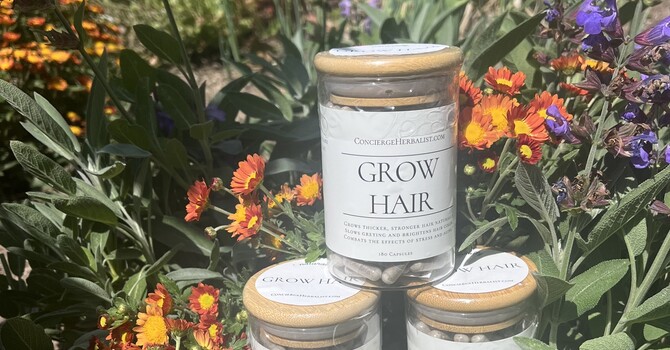
Relieving PCOS Symptoms with Chinese Herbal Therapy
Polycystic Ovary Syndrome (PCOS) is a common hormonal disorder that affects millions of women worldwide, causing symptoms such as irregular periods, ovarian cysts, hormonal imbalances, and difficulty conceiving. While conventional treatments often focus on symptom management, Traditional Chinese Medicine (TCM) offers a holistic approach to addressing the root causes of PCOS and restoring hormonal balance through Chinese herbal therapy. Let's explore how TCM can successfully relieve symptoms of PCOS when paired with proper diagnosis and treatment from a qualified doctor of Chinese medicine.
Understanding PCOS in Traditional Chinese Medicine
In TCM, PCOS is often characterized by imbalances in the body's Qi (vital energy), Blood, Yin, and Yang energies. According to TCM principles, factors such as Qi stagnation, Blood stasis, Dampness, and Kidney deficiency may contribute to the development of PCOS symptoms. By identifying and addressing these underlying imbalances, Chinese herbal therapy aims to regulate the menstrual cycle, promote ovulation, reduce ovarian cysts, and restore hormonal harmony.
The Importance of Proper Diagnosis
Proper diagnosis is essential in TCM, as it guides the selection of appropriate herbal formulas tailored to each individual's unique pattern of disharmony. A qualified doctor of Chinese medicine will conduct a thorough assessment of the patient's health history, symptoms, pulse diagnosis, and tongue examination to determine the underlying imbalances contributing to PCOS. Based on this assessment, a personalized treatment plan will be developed, incorporating specific Chinese herbal formulas to address the root causes of PCOS and alleviate symptoms.
Chinese Herbal Therapy for PCOS Relief
Chinese herbal therapy offers a variety of herbal formulas that are commonly used to relieve symptoms of PCOS and restore hormonal balance. Herbs like Shao Yao (Peony root), Dang Gui (Chinese Angelica root), Chuan Xiong (Ligusticum root), and Bai Shao (White Peony root) are known for their ability to regulate menstruation, promote blood circulation, and reduce ovarian cysts. By combining these and other herbs, TCM practitioners create customized herbal formulas tailored to address each patient's specific pattern of disharmony and symptoms.
Nourishing Kidney Qi and Essence
In TCM, the Kidneys are considered the foundation of reproductive health and play a crucial role in regulating the menstrual cycle and hormonal balance. Chinese herbal formulas containing kidney-tonifying herbs such as Shan Yao (Chinese Yam), Tu Si Zi (Dodder seed), and Nu Zhen Zi (Privet fruit) are commonly used to nourish Kidney Qi and Essence, strengthen the reproductive system, and support fertility in women with PCOS.
Consulting a Doctor of Chinese Medicine for Treatment
When seeking Chinese herbal therapy for PCOS relief, it's essential to consult with a qualified doctor of Chinese medicine who has experience in treating hormonal disorders. By working closely with a practitioner, patients can receive personalized diagnosis and treatment tailored to their specific needs and symptoms. In addition to herbal therapy, TCM practitioners may also recommend dietary modifications, lifestyle changes, acupuncture, and other adjunctive therapies to support hormonal balance and overall well-being.
Conclusion: Embracing Holistic Healing for PCOS Relief
PCOS can have a significant impact on women's physical and emotional well-being, but Chinese herbal therapy offers a holistic approach to relieving symptoms and restoring hormonal balance. With proper diagnosis and treatment from a qualified doctor of Chinese medicine, women with PCOS can find relief from their symptoms and support their journey toward hormonal harmony and optimal health. Embrace the wisdom of Traditional Chinese Medicine, and discover the transformative power of Chinese herbal therapy in relieving PCOS symptoms and restoring balance to the body.
Dr. Kim Drolet, DACM, LAc
Concierge Herbalist

Kim Drolet
Contact Me



